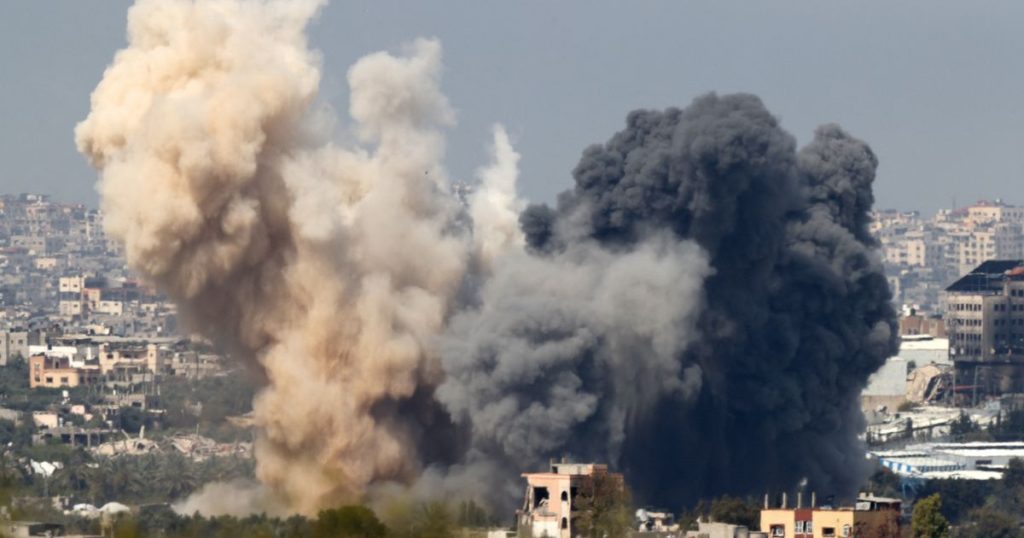As Israel continues its military campaign in the Gaza Strip, American attitudes towards the conflict have shifted, with 55% of Americans now disapproving of Israel’s actions according to a Gallup survey. This decline in support is seen across all major party groups, with Democrats and independents showing an 18-point drop in approval and Republicans a seven-point decline. The war has resulted in significant casualties on both sides, with tens of thousands of Palestinians and over 1,000 Israelis killed. Large parts of Gaza have been destroyed by Israeli bombing, leading to a humanitarian crisis with many Palestinians on the brink of famine.
Tensions between the U.S. and Israel have escalated in recent weeks, with Netanyahu canceling a delegation to Washington, D.C., after the U.S. refused to veto a UN Security Council resolution calling for an immediate ceasefire in Gaza during Ramadan. President Joe Biden and Senate Majority Leader Chuck Schumer have both criticized Netanyahu’s handling of the conflict, urging him to pay more attention to the innocent lives being lost. Despite pressure from the U.S., Netanyahu has vowed to expand Israeli military actions into the city of Rafah, where more than a million Gazans have sought refuge in makeshift shelters.
Donald Trump, a strong supporter of Netanyahu, has also weighed in on the conflict, urging Israel to “finish up” the war in Gaza and “get the job done.” Trump expressed concern that Israel was losing support due to the images of bombs being dropped on Gaza, calling it a “terrible portrait” and a “bad image.” He criticized the Defense Ministry for releasing photos and videos of the bombings, saying that it was damaging Israel’s image on the world stage. Trump’s comments highlight the complex dynamics at play in the conflict, with both domestic and international pressures influencing the actions of Israeli leaders.
The ongoing conflict in Gaza has sparked a debate within the U.S. about the best approach to dealing with the situation. While some believe that Israel’s military actions are necessary for national security, others argue that the heavy-handed tactics used by the Israeli government are exacerbating the humanitarian crisis in Gaza. The international community has called for a ceasefire to prevent further loss of life, but the situation remains volatile as Israel continues its military campaign. The shifting attitudes in the U.S. towards Israel’s actions reflect broader concerns about the impact of the conflict on innocent civilians and the potential for further escalation in the region.
As the conflict in Gaza continues, the U.S. and Israel are at a crossroads in their relationship. President Biden and other U.S. officials have called on Israel to show restraint and prioritize the protection of innocent lives, while Netanyahu has remained committed to expanding military actions in Gaza. The tensions between the two allies highlight the delicate balance of power in the region and the challenges of finding a peaceful resolution to the conflict. The coming weeks will be critical in determining the path forward for both countries and the impact of their decisions on the ongoing crisis in Gaza.


